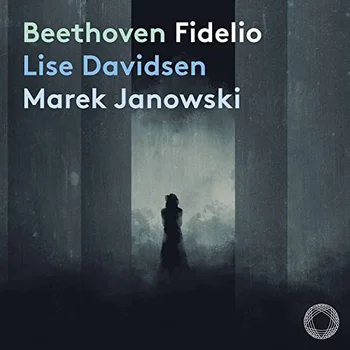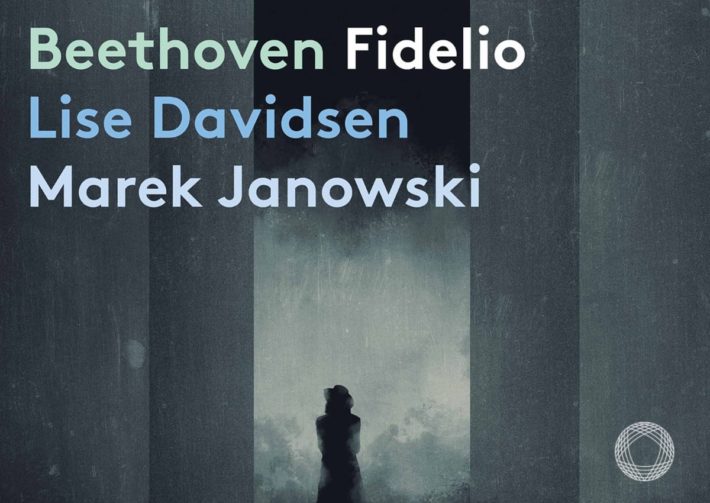This new recording of Beethoven‘s only opera was scheduled to be recorded live in the summer of 2020. Instead, it was produced under studio conditions (and special Covid protocols) in June and November 2020. The introductory note makes special mention of these circumstances, pronouncing this new album a “replacement miracle.” With this endorsement and having greatly enjoyed Janowski’s last collaboration with Lise Davidsen (Der Freischütz, reviewed here), I came to this new release with the highest expectations. Frustratingly, those expectations are only fitfully realized.

Marek Janowski is an accomplished and experienced conductor of opera, yet in this instance his pacing and dramatic sense prove unreliable. Tempi throughout are brisk; the conductor and his orchestra deliver technically precise and detailed accompaniments. Yet there is an at times faceless efficiency to the playing that adds little to enhance the drama. And while his tempi suggest Janowski is embracing historically informed performing ideas, the string-dominate orchestral sound suggests an older approach. Fans of the Abbado/Lucerne Festival and Mahler Chamber Orchestras (Decca) and the Mackerras/Scottish Chamber Orchestra (Telarc) interpretations, which clearly reflect historically informed performance practice, may well find this performance old-fashioned.
The Overture is a good gauge of Janowski’s interpretive stance. At 6’31”, Janowski’s reading takes the exact same amount of time as Haitink with the Staatskapelle Dresden. Yet Haitink’s strings dig deeper, his woodwinds exhibit more personality and the brass add a glistening frisson to the color. Moreover, Haitink creates an urgency and forward momentum, whereas Janowski’s reading has a pleasant competence that does little to establish the mood of the upcoming drama.
The singing, for the most part, operates on a higher plane. The opening duet between Marzelline (soprano Christina Landshamer) and Jaquino (tenor Cornel Frey) is beautifully sung, their gentle dispute convincingly portrayed, though Marzelline’s aria that follows (O wär ich schon, track 4) Landshamer’s tone occasionally becomes brash. Rachel Harnisch (Abbado) singing is just as beautiful, but she finds greater tenderness in her rendition.
The reading seems to find surer footing (and a notable rise in emotional temperature) with Lise Davidsen’s first appearance (track 6/Quartet). These days any new recording by Davidsen is a major draw, and, as hoped, her portrayal of Leonore is gorgeous, nuanced, and compelling. Davidsen ensures the listener fully knows and feels Leonore’s thoughts and emotions, with a fulsome and richly burnished tone that is passionate and intensely lyrical. Listen to how passionately she conveys Leonore’s belief in justice (track 10/Trio), or in the central recitative and aria of Act I (16), her furious disgust at Pizarro and deep love for Florestan. This is a deeply moving portrayal.
Johannes Martin Kränzle’s Don Pizzaro is an imposing characterization, his evil intentions always palpable. Tenor Christian Elsner is also impressive, fully capturing Florestan’s desperation in the opening of Act II. Yet Janowski’s chosen tempo (9’00”) undermines the dramatic potential of the music: Haitink (10’48”) and Abbado (11’24”) more successfully create a darker, more menacing atmosphere and Jonas Kaufmann (Abbado) takes advantage of the slower tempo and freedom to draw the listener into Florestan’s fragile emotional state. To his credit, Janowski seems to find a deeper level of involvement beginning with “Er sterbe! Doch er soll” (CD 2, track 7). The moment where Leonore steps in front of Florestan, proclaiming her identity is thrilling, as is the love duet that follows (“O namenlose Freude!”). The MDR Leipzig Radio Choir is excellent – fabulous diction and impeccable intonation fused with full-throated dramatic singing.
Unlike many performances, Janowski does not insert the third Leonore overture into the second act. While this might make dramatic sense, there is plenty of room on the second disc for it to be included as an appendix. Steffan Georgi’s notes are excellent, scholarly yet accessible, tracing the work’s complicated genesis and examining the music for the orchestra, chorus, and main characters in turn. The booklet also includes the full text and translations. Pentatone’s recording, exceptionally clear and warm, strikes an ideal balance between the voices and orchestra, with the chorus far enough forward to be an active participant in the drama. While this is not a performance that dislodges established recommendations, the singing of Lise Davidsen is masterly, and will no doubt ensure this recording’s success.
Recommended Comparisons
Bernstein | Abbado | Klemperer | Szell
Beethoven – Fidelio, Op. 72
Christian Elsner, Tenor
Lise Davidsen, Soprano
Georg Zeppenfeld, Bass
Christina Landshamer, Soprano
Cornel Frey, Tenor
Johannes Martin Kränzle, Baritone
Günther Groissböck, Bass-Baritone
Aaron Pegram, Tenor
Chao Deng, Bass
Sächsischer Staatsopernchor Dresden
Male voices of MDR-Rundfunkchor
Dresdner Philharmonie
Marek Janowski



















